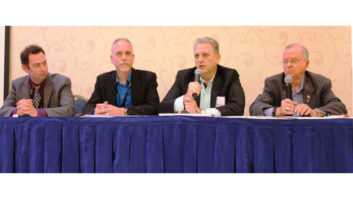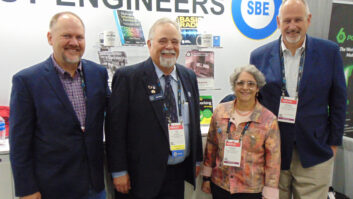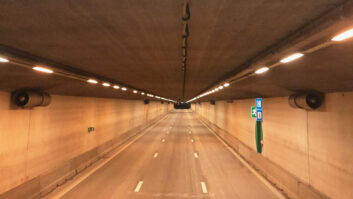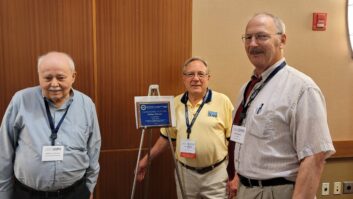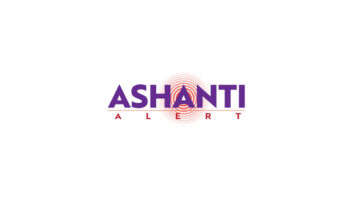LOS ANGELES � In Radio Magazine Today articles, we often discuss news items from the big four cellular companies � AT&T, Verizon, Sprint and T-Mobile, as well as efforts from other companies such as Google and Facebook. Our reasoning is simple: as the technology used in broadcasting continues to evolve, it�s important to keep up with the means of transmission and connectivity � both mobile and fixed. With that in mind, let�s take a look at a couple of recent developments.�

Webpass, which Google�officially acquired�in October, now offers fixed wireless internet access in Boston, Chicago, Miami, Oakland, San Diego and San Francisco. Consumers in those six metros may be eligible to use Webpass if their building has at least 10 units, and is wired with Ethernet cabling, according tofiercewireless.com. �Copper Ethernet wiring can allow for blazing gigabit speeds, making them an affordable alternative for building owners to install vs. coaxial cable or even fiber,� writes Google Fiber President Dennis Kish.�
Webpass prices start at $60 a month, and the service is available in tiers of 100 Mbps, 200 Mbps, 500 Mbps and 1 Gbps.
Google hashalted work on its plansto provide FTTP (fiber to the premises) last spring.� The �last mile� connectivity for Webpass is provided by a radio link.�
AT&T says it will build two new 5G test beds, set to go on air this spring, at the AT&T Labs in Austin. The company said it expects its wireless network to offer theoretical peak speeds of 400 Mbps or higher, also according tofiercewireless.com.As it continues to �densify its network and deploy�technologies like carrier aggregation and LTE-License Assisted Access, it expects to enable theoretical peak speeds up to 1 Gbps in some areas in 2017.�
�We will work with multiple vendors to evaluate advanced 5G technology concepts for both fixed and mobile solutions, test network infrastructure and devices and explore 5G signal coverage for the 28 GHz, 39 GHz, and sub-6GHz frequency bands,� AT&T said in a press release.�
�





